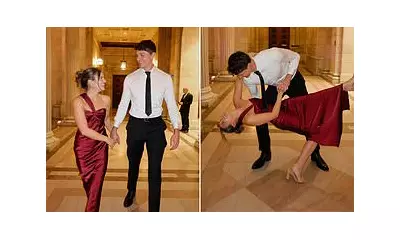
A dramatic protest unfolded during a Broadway performance in New York this week, as audience members disrupted the production of 'Parade' with Hebrew prayers and political statements.
Theatre Protest Makes Waves
During a recent showing of the musical 'Parade' at New York's Bernard B. Jacobs Theatre, approximately a dozen protesters rose from their seats during a critical scene, chanting Hebrew prayers and displaying banners with messages including 'There is no pride in genocide'.
The demonstration occurred during the musical's powerful climax, creating a tense atmosphere in the historic theatre. Security personnel were forced to intervene and escort the protesters from the premises as the performance continued.
Production History and Context
'Parade', which originally premiered on Broadway in 1998, tells the tragic true story of Leo Frank, a Jewish factory manager wrongly convicted of murder in early 20th-century Atlanta. The production has recently returned to Broadway with actor Ben Platt in the lead role.
The musical's exploration of antisemitism and injustice has made it particularly resonant in today's political climate, though this appears to be the first significant protest action targeting the current revival.
Mixed Reactions from Theatre Community
Broadway audiences and theatre professionals have expressed divided opinions about the protest method. Some argue that disrupting artistic performances undermines free expression, while others see it as legitimate political action.
One theatregoer who witnessed the event described it as 'deeply unsettling', noting that while they understood the protesters' concerns, the method felt inappropriate for the venue.
The production's management has not released an official statement regarding the incident, though sources indicate additional security measures may be implemented for future performances.
Broader Implications for Theatre
This incident raises important questions about the role of theatre in political discourse and the boundaries of protest in cultural spaces. As artistic institutions increasingly become sites of political expression, the balance between free speech and artistic integrity remains a complex challenge.
The Broadway community continues to debate whether such actions advance important conversations or simply disrupt the artistic experience for audience members.





